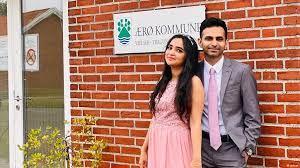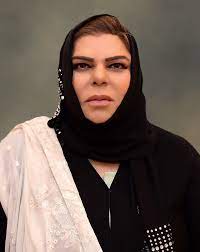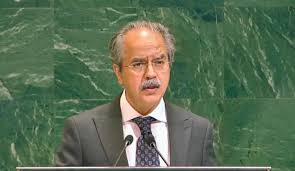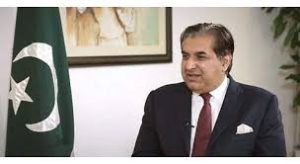Denmark – Europe’s ‘get-hitched-quick’ destination

Copenhagen: German entrepreneur Alina Hepp-Chaudhary married her Indian husband, Bharat Chaudhary, in Denmark in 2016.
However, this Scandinavian country wasn’t their first choice: In Alina’s native Germany, international couples face a long, bureaucratic and expensive process to tie the knot. In India, on the other hand, Bharat and Alina were taken aback by the extensive corruption that blight the legalities of marriage. Losing hope in both their homelands, Alina and Bharat took a friend’s advice and opted to get married in Denmark instead. In just two weeks, the Danish authorities pronounced them husband and wife.
Surprised by the easy process, Alina decided to help other couples get married in Denmark too. After working in the Indian Consulate in Hamburg for three years, she decided to professionally consult for those who were in similar situations like her. Today, she runs a consultancy service, through which she claims to receive 20 to 30 clients every month, largely made up of Indians, Pakistanis, or same-sex couples.
As Danish marriage law does not discriminate between locals and foreigners, international couples have also started to flock to Denmark to get married with minimal bureaucratic hassle. This isn’t the case in other European countries like Sweden or Germany or even in the USA or Canada, which requires foreigners to have residence status in order to get married there.

Pakistani citizen Gita Kirshan married her Indian husband Nitesh Naresh Bagda in August 2022. Both belong to the Maheshwari caste, a Hindu sub-group whose members today live in western Indian states and Pakistan, divided by the partition of 1947. Gita and Nitesh’s parents were able to organize this match through the strong cross-border ties that the Maheshwaris continue to cherish to this day, explained Nitesh.
But given the factious political history that both countries share, Gita and Nitesh were aware of the chaos that awaited them. After all, it isn’t every day that an Indian marries a Pakistani or vice-versa. Even though Gita’s nationality didn’t bother him, Nitesh’s Indian friends weren’t too supportive of his choice and wondered why he ‘found a Pakistani of all people to marry’.
A current resident of Canada, Nitesh remained undeterred. He said, “Relations between India and Pakistan have always been complicated. And there is very little hope that it will get better, so we had an idea of the bureaucratic difficulty. But we thought that it would not be so important at an individual level. We were pretty much confident that if I apply from Toronto, it should not be difficult.” After multiple attempts to get a visa from both India and Pakistan, Gita and Nitesh gave up on the idea of getting married in either country. Gita explains, “We looked for countries with minimum bureaucratic processes for marriage and that is how we came across Denmark. There, you can get married even on a tourist visa!”
Alina noted the especially difficult situation that Indo-Pakistani couples face. She says, “I have seen up close how difficult it is for a Pakistani to get a visa for India. It is quite impossible. It is not only difficult for these couples to get married, but they cannot be so open about their relationship to begin with. Lots of couples keep their relationship a secret.” According to Nitesh, the problem isn’t with the law, as “technically it is possible for an Indian and a Pakistani to get married to each other.” It appears to be a combination of the unsaid social norms, narratives of hyper-nationalism and corruption that makes the task extremely difficult, if not impossible.
In such cases, Denmark provides an avenue for those who can afford a marriage in this country. As a member of the Hague Apostille Convention, the Danish marriage certificate is valid in more than 120 countries. This certificate is preferred by couples looking to move abroad, as it is available in English, German, Danish, French and Spanish. For Pakistan, it isn’t automatically recognised, but requires a legalisation, which wasn’t as much of a hassle as getting a visa was for Gita and Nitesh.
As of July 2022, Pakistan has applied to be a member of this convention, but no decision has been made yet. Unlike Gita and Nitesh, Tripti and Surbhi G.* couldn’t imagine getting married in India even though they are both Indian citizens. For them it wasn’t the bureaucracy; it was the lack of legal provisions which came in the way of their married life together.





